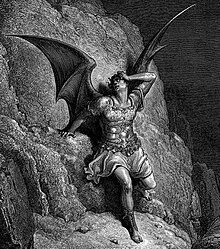 |
| Robert Mickens |
Mickens was surprised to see that no post-1962 saints had been added to the calendar. For someone who takes such an interest in these matters, did he really not know that the addition of new saints has yet to take place? Or is his shock, on looking at the Ordo entirely synthetic? He wrote:
Among the first things one notices flipping through its 91 pages is that saints canonised after the Second Vatican Council are missing. No Edith Stein. No Maximilian Kolbe. No Padre Pio. Not even Josemaría Escrivá. This is odd, given that Pope Benedict specifically said in Summorum Pontificum (2007) that “new saints … should be inserted in the old Missal”. The Ordo, of course, is not the Missal, but the calendar for the breviary and the Mass is identical.
No matter. As this new publication demonstrates, the old rite continues to be widely different from the new rite. Many of the same saints are celebrated on different days in the two forms, and the general ordering of the liturgical seasons is different. For example, there was not before – nor is there now – “Ordinary Time” in the old rite. Can the coexistence of these two “forms” really promote unity when we’re not even praying from the same page?
Clearly the Holy Father thinks so; one indication is the promulgation of the Ordinariate calendar, which has 'Sundays after Epiphany' and 'Sundays after Trinity' in the Anglican (and Sarum) fashion, instead of 'Ordinary Time'. Here's my letter, with the original capitalisations; for some reason the tablet allows Mickens to capitalise 'ordinary time', but not me. Perhaps the Letters Editor is an e.e. cummings fan.
Robert Mickens (Letter from Rome, 12th May), referring to the new Ordo produced for the Extraordinary Form by the PCED, with its distinctive liturgical calendar, asks ‘Can the coexistence of these two “forms” really promote unity when we’re not even praying from the same page?’ This is a puzzling question, since if all the differences between the two Forms of the Roman Rite were ironed out, there would be no two forms to promote unity.
The promotion of unity by means of liturgical diversity is a theme of the Second Vatican Council, both in the Constitution on the Sacred Liturgy (‘Even in the liturgy, the Church has no wish to impose a rigid uniformity’: Sacrosanctum Concilium 37) and the Decree on Ecumenism (‘But let all… enjoy a proper freedom, … in their different liturgical rites... they will be giving ever better expression to the authentic catholicity and apostolicity of the Church’: Unitatis redintegratio 4) Bl. Pope John Paul II declared that a ‘genuine plurality of forms’ is ‘the Church’s ideal’ (Orientale Lumen 2). With the Eastern churches in view, this pluriformity clearly includes important differences in the calendar.
Even within the Latin Church, Mr Mickens will find calendrical differences. In churches belonging to religious orders, he will perhaps be shocked to witness celebrations of the order’s founder and martyrs which are not celebrated in the next parish. He is no doubt even more shocked to find that the Bishops of England and Wales this week celebrate the Feast of the Ascension on a different day to the Holy Father in Rome. If he looks at the newly-approved calendar for the Ordinariate, he may need to lie down: like the calendar for the Extraordinary Form, it eschews the term ‘Ordinary Time’.

Yours faithfully,
Joseph Shaw Chairman, The Latin Mass Society
The oddest thing about this whole debate is that liberal Catholics are in favour of liturgical variety. The Tablet has (at least by implication) defended priests who make up their own prayers, for example; they are dismissive of attempts to rein in what the Holy Father has called 'arbitrary deformations of the liturgy'. They seem to be in favour of variety when it is illicit, and against variety when it is licit. The licit is illicit, the licit illicit... As Milton's Satan said, 'Evil be though my good!' Or maybe just 'Non serviam!' I will not serve.
No comments:
Post a Comment